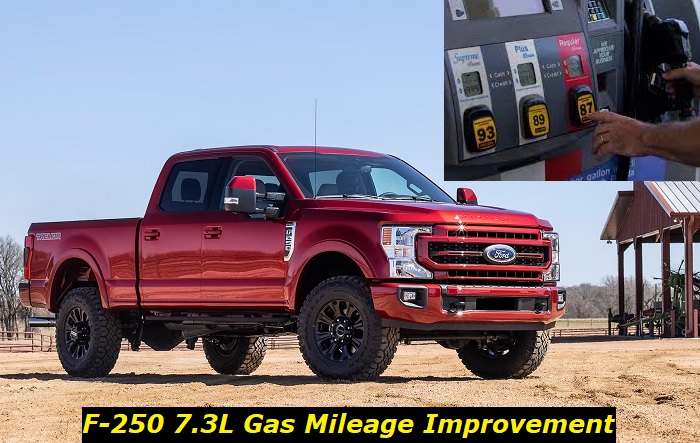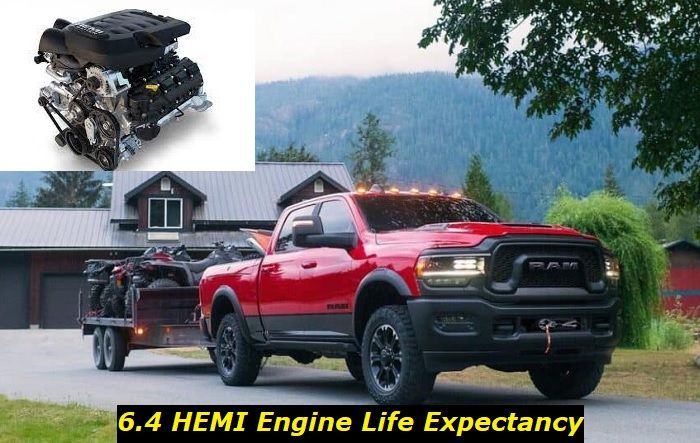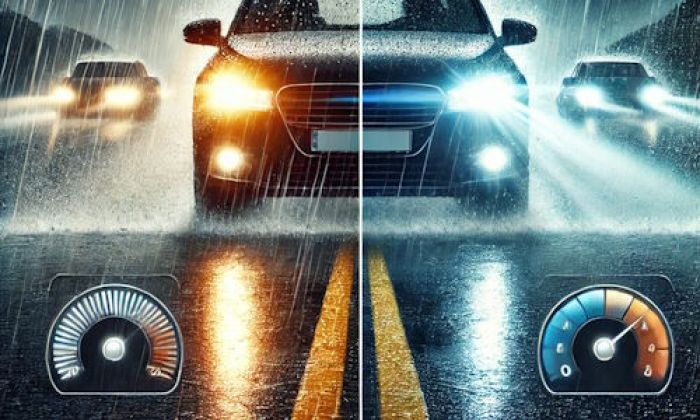Your durable and reliable Ford truck with the 7.3L engine wasn't made with the thought of economy. Huge engines burn a lot of fuel and this is one of the reasons they are not considered eco-friendly. The more gas the vehicle burns, the more emissions it produces when working and the worse it is for nature.
Key features and my opinion about the engine
- Production years:2020-now
- Average lifespan of 7.3L Godzilla:400,000-500,000 miles
- Fuel supply type:port injection
- Power range:300-430 hp
- Fuel efficiency:awful
- Engine block material:cast-iron
- Engine reliability score:high
- The most common problems:phasers are faulty, oil and coolant leaks, enormous fuel consumption.

Godzilla 7.3L engine - what's the mileage claimed by Ford?
Ford gives a range of different figures for vehicles in various road conditions. It all looks pretty hard to understand. We figured out that Ford claims the F-250 Super Duty truck equipped with the 7.3L Godzilla engine will be able to show about 12 MPG in the city and 15.5 MPG on highways with a combined estimated mileage of 14 MPG.
Unfortunately, all owners of the F-250 will read this information with smiles on their faces. Yes, you will get approximately 15 MPG on the highway if you go about 75 mph without overtaking anyone. But 12 MPG in the city seems quite unachievable. Maybe only in perfect road conditions without traffic lights and other cars on the road.
Also, the towing MPG is stated to be 8-9 MPG. And this starts to be annoying. When you are towing something in your F-150, for example, equipped with a turbo engine, you are expected to get a maximum of 1.5 MPG drop in the economy. In your F-250 it's going to be different. But this is the payment for the towing capacity of more than 20K pounds.
So, even the officially claimed gas mileage is not going to be the reason for joy. But what happens in reality?
Real-life gas mileage in the 7.3L F-250 truck?
In real-life conditions, you are going to warm up your truck, spend some time at traffic lights when the engine is idling, accelerate fast to overtake someone, etc. This is going to take extra gallons of fuel during your driving.
We've asked some F-250 owners and drivers and we've also researched online and here's what we could find:
- the city gas mileage for the F-250 equipped with the Godzilla is about 10 MPG;
- if you are towing something in the city, the MPG will drop to 7-8 MPG;
- on highways, your F-250 is going to go about 14 MPG, no matter if it's towing something;
- putting some loads in the bed will affect your MPG the same way as towing something;
- if you want economy, you should very gently press the gas pedal.
The V8 engine is pretty great with its 430 horsepower and very solid 10-speed automatic transmission. The powerplant offers great power. But when you step on the pedal hard, the fuel seems to be flowing to the engine like a mountain river. If you want economy, never press that pedal too hard.
Also, this is not the engine that loves rotation at high speed. It would prefer calm rotation up to 2000 RPM at all times. It's powerful enough to even tow a 20,000 trailer at this RPM level.
Improving gas mileage in your F-250 - possible?
We haven't seen anyone who would improve gas mileage in their F-250 trucks and make it better than the claimed MPG by Ford. You should be the fuel economy magician to make that in the long run. Maybe once in a while, when you are driving on an empty highway, you can see 16 MPG.
Anyway, to even reach the claimed fuel consumption in your Ford F-250, you will need to do something, not just drive your vehicle without thinking much. Fuel economy may be boring for you because driving the F-250 truck and considering fuel consumption will require some very unpopular steps from you.
Here are some of them:
- try not to rotate your engine more than 2000 RPM - this is the optimal engine speed for better fuel economy;
- accelerate slowly - this is the golden rule for the economy in all big-displacement engines, they hate sharp revving up;
- use your modes - modern engines allow drivers to choose different modes and you should choose something economical at all times;
- one more important thing is the quality of the gasoline you use - bad or dirty gas will only spoil fuel economy stats for your vehicle;
- choose better routes - choose roads with fewer traffic lights and fewer cars to avoid making a lot of stops;
- turn the engine off when you are going to be parked for more than a minute;
- avoid towing more than the towing capacity allows - this will affect your gas mileage heavily.
Unfortunately, there is no magic way to reduce fuel consumption in your F-250 truck. It's not made to be an economical vehicle. It's made to work hard and be as reliable as possible. That's why you don't get any turbo engines with the F-250 truck and all engine options are so big and gas-thirsty.
The 7.3-liter option may not seem the best engine for the F-250. You may also choose the 6.2-liter gas engine that allows you to drive more miles per 1 gallon of fuel. But it will also tow less. And there is another option - the turbodiesel 6.7 (Power Stroke) engine that is certainly worth your attention if you need better consumption (up to 30 MPG on highways and 22 MPG in the city).
What technical issues may cause bad gas mileage in your F-250 7.3L engine?
Well, there are plenty of technical issues that may cause bad fuel consumption and lead to other unpleasant consequences. We can't tell you about all of them but we'll certainly cover the most important and common ones.
Here's what you should check if your F-250 7.3L engine burns too much fuel:
- injection system - when fuel is injected in the wrong way, it won't be burned efficiently, so check and clean the fuel injection system;
- variable valve timing - this feature is cool when the engine is young, but once it gets older and problematic, the VVT may fail and cause worse gas mileage;
- spark plugs and coils - you have to check these parts every year or every 20K miles to avoid issues with fuel ignition;
- engine sensors - the engine is pretty simple but still has some sensors that may affect fuel injection and air-fuel ratio, so they affect the consumption;
- exhaust system and ecology equipment - problems with the exhaust, cat converter, and other parts may cause higher fuel consumption;
- engine temperature issues - overheated or underheated engine will burn more gas, also, it's important in terms of the durability of the engine;
- lubrication issues - when the engine is lubricated poorly, it will create too much resistance in some parts making the fuel consumption worse.
The 7.3L Godzilla engine uses an adjustable oil pump which is pretty tricky. It will work just fine for the first 100K miles, but after that, it may fail to adjust when needed. The pump is repairable but experts recommend replacing it if the part fails. Otherwise, it will keep getting on your nerves and may just stop sending oil to the needed parts of the engine.
Also, this engine is known for sparkplug wiring harness failure. This may lead to bad gas mileage as one or several spark plugs won't be working. Wiring issues may also lead to other problems that directly or indirectly affect fuel consumption.
What to do if I'm not satisfied with my F-250 7.3L gas mileage?
There are some things you can do in this case. First of all, you may follow all the tips and tricks we've given above. They will help you at least partially reduce fuel consumption and make your gas mileage more or less the same as claimed by Ford.
Secondly, you may consider getting a diesel-powered F-250. It has more or less the same specs in terms of towing and it gives twice as many miles in 1 gallon of gas as the 7.3L-powered version.
Also, take your F-250 to regular maintenance on time and avoid driving your truck with some problems and technical issues. This will help you always achieve the best possible gas mileage and optimal performance of the engine.
Unfortunately, there is nothing you can do to your 7.3L Godzilla engine in the F-250 truck to make it burn less fuel than it should burn according to Ford's claims.
About the authors
The CarAraC research team is composed of seasoned auto mechanics and automotive industry professionals, including individuals with advanced degrees and certifications in their field. Our team members boast prestigious credentials, reflecting their extensive knowledge and skills. These qualifications include: IMI: Institute of the Motor Industry, ASE-Certified Master Automobile Technicians; Coventry University, Graduate of MA in Automotive Journalism; Politecnico di Torino, Italy, MS Automotive Engineering; Ss. Cyril and Methodius University in Skopje, Mechanical University in Skopje; TOC Automotive College; DHA Suffa University, Department of Mechanical Engineering






Add comment